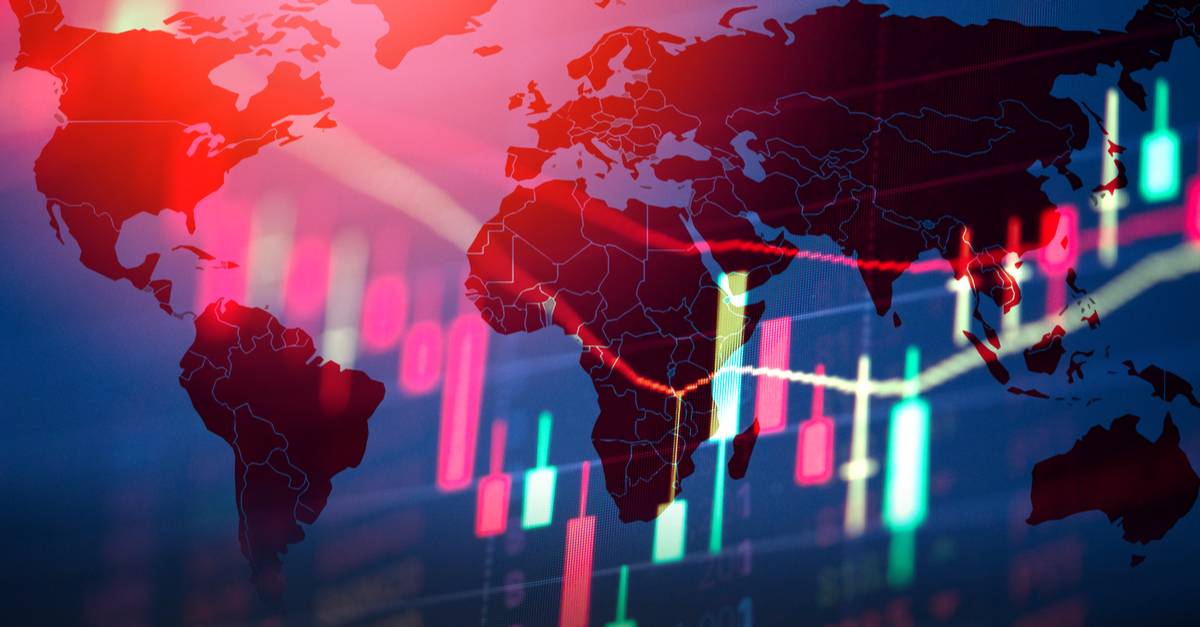Navigating Financial Landscapes: Insights for Modern Economies
Understanding Global Economic Trends
The global economy has evolved significantly over the past few decades, shaped by technological advancements, geopolitical shifts, and changing consumer behaviors. As modern economies strive to navigate this complex landscape, understanding the underlying trends becomes essential. Analysts and policymakers alike are keen to examine factors such as trade dynamics, fiscal policies, and international cooperation, which all play critical roles in influencing economic stability and growth. With an ever-increasing interdependence in global trade, countries must adapt to rapidly changing scenarios and cultivate resilience.

One significant trend impacting economies today is the digital transformation witnessed across various sectors. The advent of digital currencies, fintech, and online platforms has revolutionized the way financial transactions are conducted. For instance, the proliferation of digital platforms like 1xbet free offers users an unprecedented opportunity to engage in online activities ranging from sports betting to other financial transactions. Such platforms not only provide entertainment but also contribute to the economic dynamism by creating new job opportunities and streams of revenue.
The Role of Policy in Economic Stability
Sound economic policy plays a crucial role in stabilizing and guiding economies through turbulent times. Governments around the world are tasked with implementing policies that foster growth while maintaining a balance between inflation and employment. Monetary policies, in particular, have significant implications on the economic landscape, affecting everything from interest rates to foreign exchange markets. By carefully calibrating these policies, central banks aim to maintain economic equilibrium and safeguard against potential downturns.
Fiscal policy is another vital tool for modern economies. Initiatives that focus on infrastructure development, education, and healthcare can have long-term benefits by enhancing productivity and improving quality of life. Policymakers must also consider the implications of taxation and spending to ensure that they support sustainable growth without burdening future generations with excessive debt. In today’s interconnected world, collaboration between nations can provide a robust framework for addressing global economic challenges.
Harnessing Technology for Economic Growth
The integration of technology into business operations has become a cornerstone for modern economic growth. From artificial intelligence and machine learning to blockchain and the Internet of Things, these technologies are reshaping industries and driving efficiencies. Businesses that successfully harness these tools can gain a competitive edge, increasing productivity and opening up new markets. Consequently, economies that promote innovation and invest in technological infrastructure stand to benefit significantly in the global marketplace.
Moreover, technology facilitates greater financial inclusion, allowing individuals and businesses in remote areas to access financial services and markets. Mobile banking, digital wallets, and online micro-lending platforms have become crucial in bridging the gap for underbanked populations. By leveraging technology, modern economies can support sustainable development and ensure that economic benefits are more evenly distributed across different demographics.
The Impact of Globalization
Globalization has been a driving force in shaping the economic landscape, enabling the flow of goods, services, and capital across borders. While it has created numerous opportunities for trade and investment, it has also presented challenges such as economic disparities and cultural homogenization. As countries open up their markets, they must navigate these complexities to harness the full potential of globalization. Ensuring fair trade practices and fostering economic partnerships are essential strategies for maximizing the benefits of a global economy.
E-commerce is a significant aspect of globalization, breaking down geographic barriers and providing businesses with access to international markets. Companies that embrace e-commerce platforms can extend their reach, tapping into diverse customer bases and generating substantial economic activity. In this interconnected world, understanding the nuances of globalization is crucial for stakeholders seeking to capitalize on emerging opportunities.
Exploring the Digital Platform 1xbet Free
The digital platform 1xbet free has become a noteworthy case study in understanding how online environments contribute to economic landscapes. As a comprehensive platform offering sports betting and casino games, 1xbet free has harnessed the power of digital connectivity to reach a global audience. It provides a wide array of services that not only entertain but also stimulate economic participation by engaging users in new and interactive forms.

Through its innovative approach, 1xbet free exemplifies how digital platforms can transform traditional industries and create dynamic economic ecosystems. By integrating user-friendly interfaces and providing diverse offerings, it has set a benchmark for online engagement. Understanding the impact and potential of such platforms is vital for anyone interested in modern economic trends, demonstrating how digitalization continues to reshape our financial landscapes.
